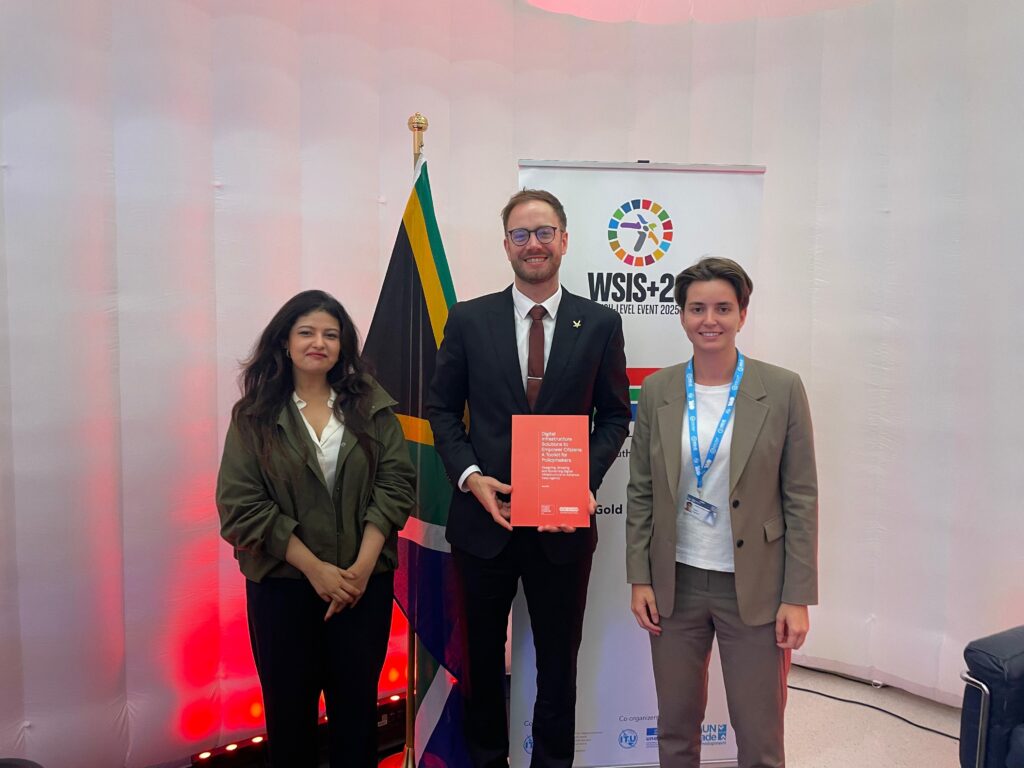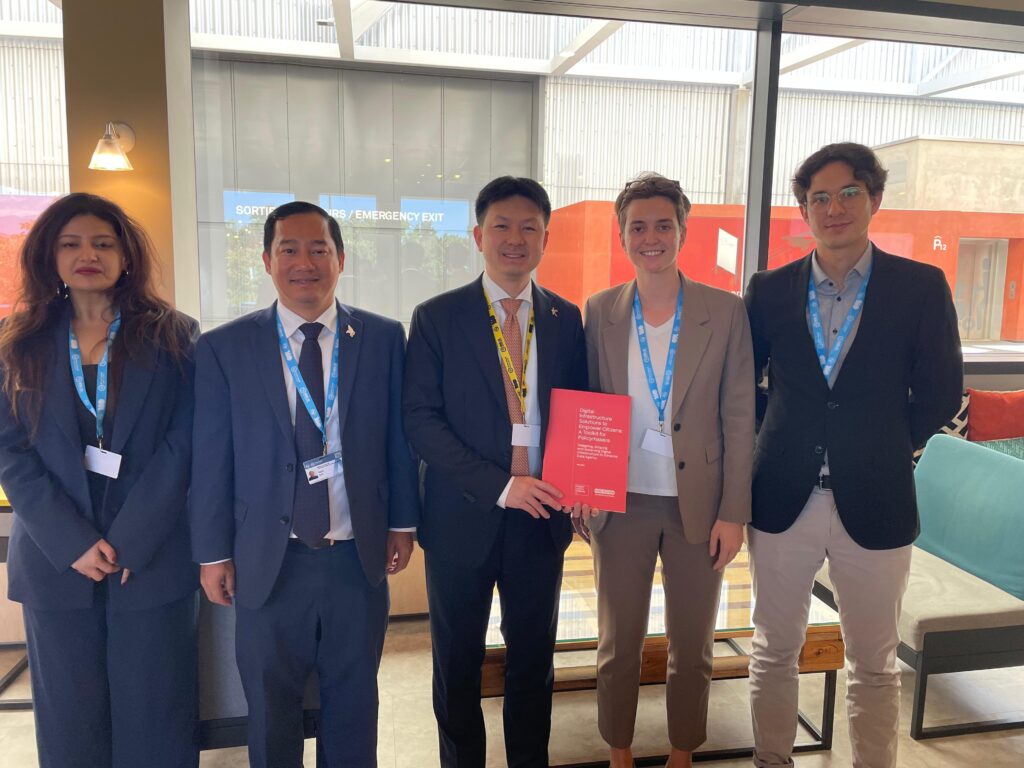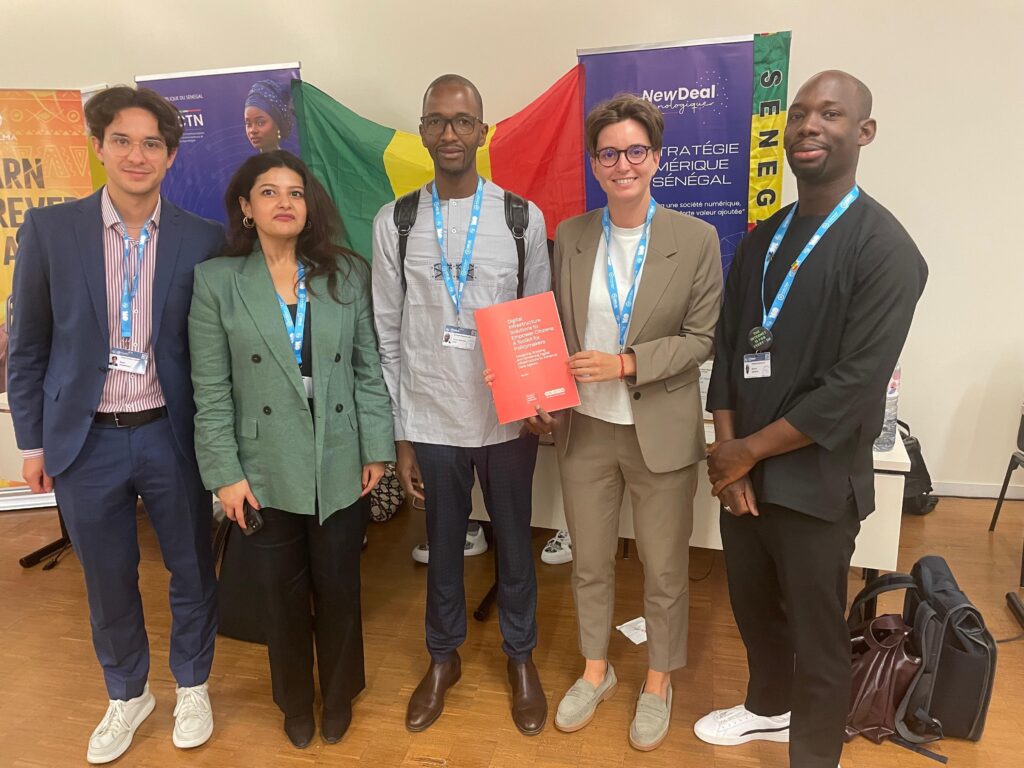Last week, the Project Liberty Institute, with our partners the Global Solutions Initiative, attended the World Summit on the Information Society (WSIS)+20 and the AI for Good Summit, both organized by the International Telecommunication Union in Geneva.

This was the first stop to disseminate the recently published toolkit “Digital Infrastructure Solutions to Empower Citizens: A Toolkit for Policymakers Designing, Scoping, and Governing Digital Infrastructure to Advance Data Agency.”
Key Insights
The Project Liberty Institute and the Global Solutions Initiative had the opportunity to sit down with policymakers from six key countries, each with different yet sometimes similar approaches to digital infrastructure development, namely Brazil, Cambodia, Germany, Senegal, South Africa, and Switzerland. Each conversation highlighted some key insights:
- The fragmentation of technical systems, alongside siloed governance and financial mechanisms, poses a systemic challenge across governments.
- Building digital infrastructure is not enough on its own; building public trust is also an equally critical factor. Ensuring adoption requires deliberate efforts to foster inclusion and build confidence in the systems.
- Though interoperability is a common priority, its scope differs depending on the context, spanning coordination across sectors, levels of government, national boundaries, and regional or global collaboration.

More to Come
Many additional meetings with governments across the world are already underway, including at the upcoming United Nations General Assembly in September in New York City and at the T20 South Africa Summit in November.
The insights gathered during those bilateral meetings will contribute to shaping a practical roadmap to help bridge institutional silos across government ministries and agencies, enabling more coordinated, coherent, and impactful digital infrastructure strategy implementations. In doing so, we aim to ensure that the ambitions outlined in the toolkit are matched by the means necessary to bring them to fruition, paving the way for resilient, inclusive, and future-ready digital foundations.
